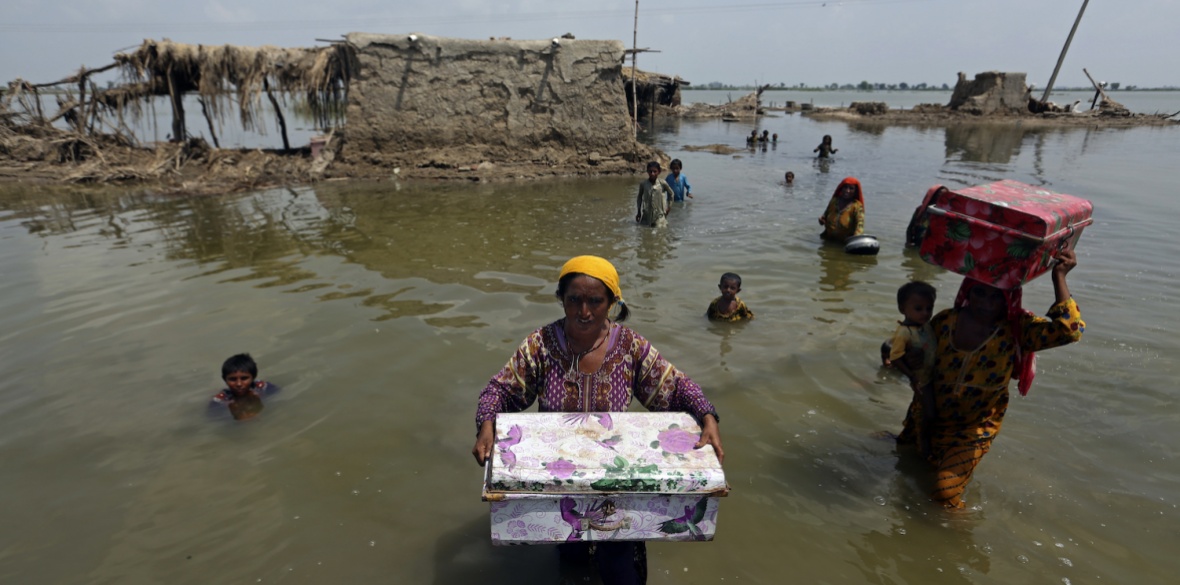This is the last article you can read this month
You can read more article this month
You can read more articles this month
Sorry your limit is up for this month
Reset on:
Please help support the Morning Star by subscribing here
HUMAN-made climate change was likely the main cause of the deadly floods that submerged parts of Pakistan in recent weeks, according to experts.
An international team of climate scientists at the World Weather Attribution group said that rainfall in the worst-hit regions had increased as much as 75 per cent in recent decades and concluded that human activity likely boosted record levels of August precipitation in Sindh and Balochistan provinces.
The resulting flooding affected over 33 million people, destroyed 1.7 million homes and killed nearly 1,400 people.
The scientists found that climate change likely increased the five-day total rainfall for Sindh and Balochistan by up to 50 per cent.
The analysis showed that there was a 1 per cent chance of such an event occurring in any given year in our current climactic conditions.
“The same event would probably have been much less likely in a world without human-induced greenhouse gas emissions, meaning climate change likely made the extreme rainfall more probable,” the team said.
The authors of the study said that due to large variations in seasonal monsoon rainfall over Pakistan historically, it was not possible to conclude that human-made warming contributed significantly to 60-day total rainfall levels.
“What we saw in Pakistan is exactly what climate projections have been predicting for years,” said Friederike Otto, senior lecturer in climate science at Imperial College London’s Grantham Institute.
“It’s also in line with historical records showing that heavy rainfall has dramatically increased in the region since humans started emitting large amounts of greenhouse gases into the atmosphere.”
Other parts of the globe have also been suffering severe climate incidents.
A tropical storm in Japan has left two people dead, more than 100 injured and thousands without power.
Typhoon Nanmadol, which struck over the weekend, was one of the most powerful ever to strike the country.
More than 130,000 homes were still without power on Tuesday morning, according to the Economy and Industry Ministry. The tropical storm has headed out to the Pacific Ocean, the Japan Meteorological Agency said today.
More than 1.5 million people on the Caribbean island of Puerto Rico, a US colony, have been in the dark since Sunday after Hurricane Fiona knocked the power out across the island.
Carmen Yulin Cruz, the former Mayor of San Juan, said: “Puerto Rico is what happens when climate change goes wrong.
“Right now about 750,000 people have no water services.”
President Joe Biden has declared a state of emergency so that aid can be provided to the island.










